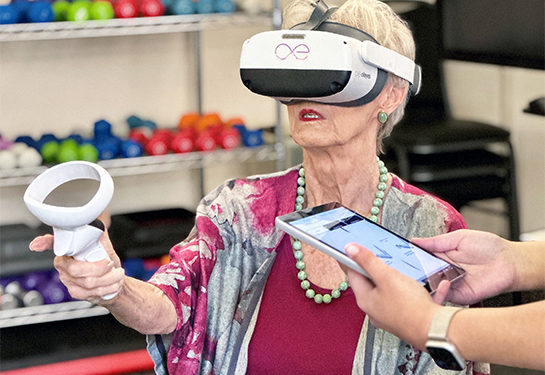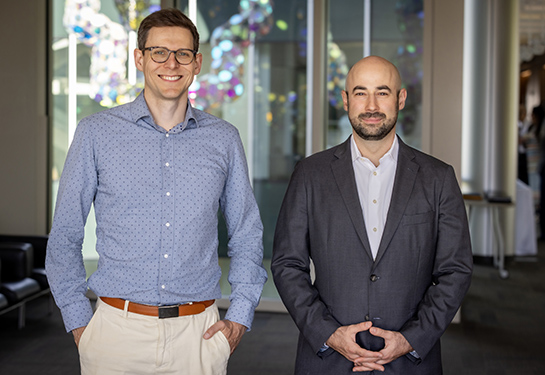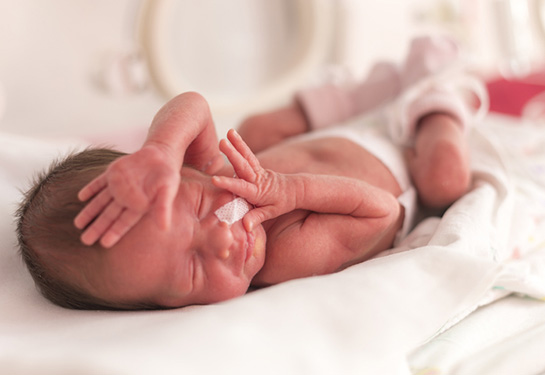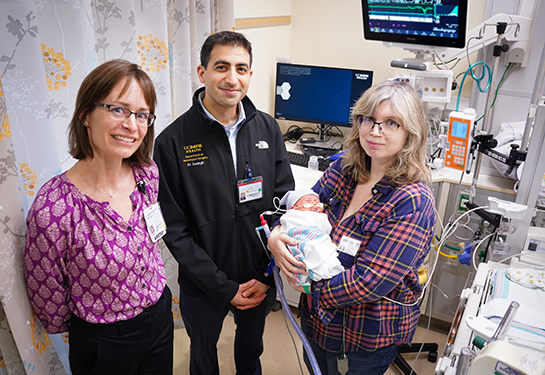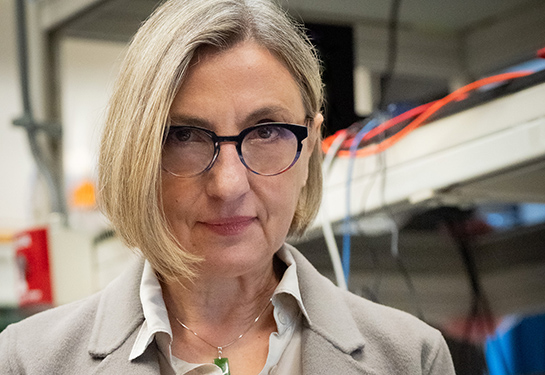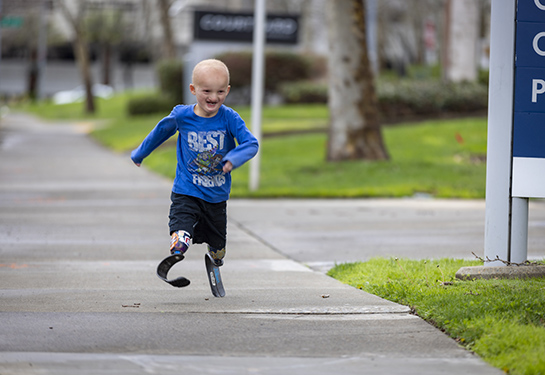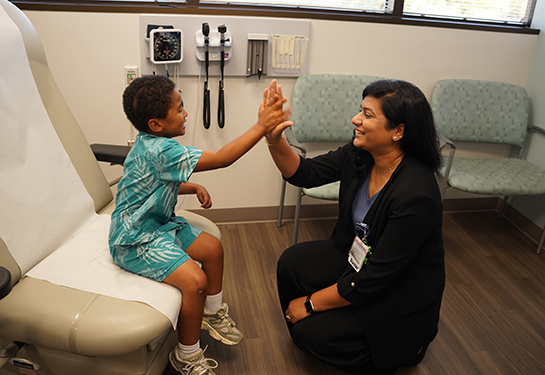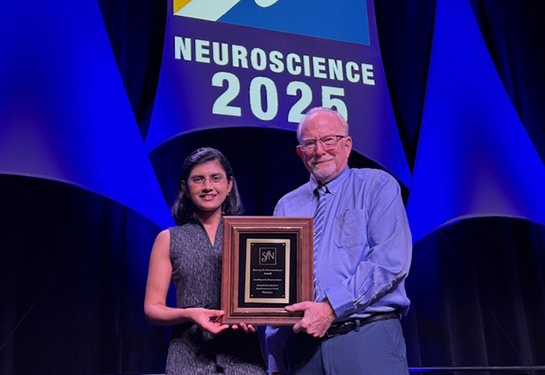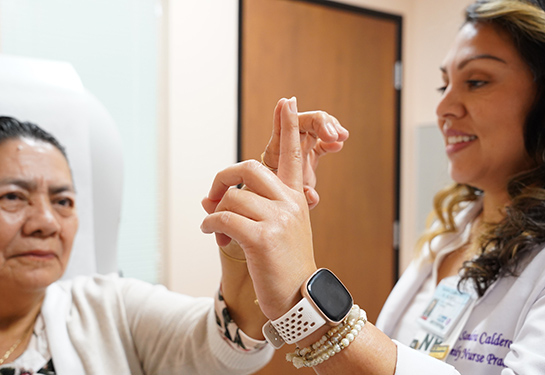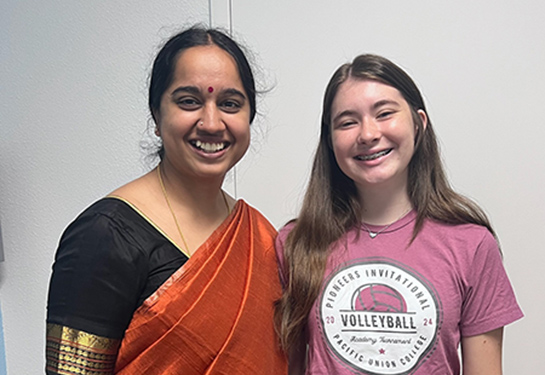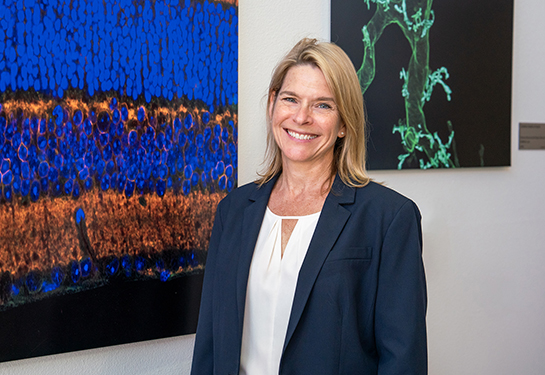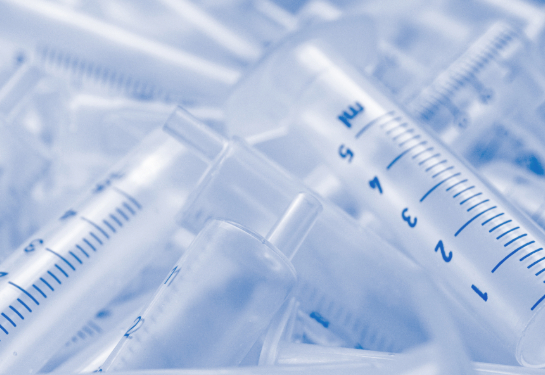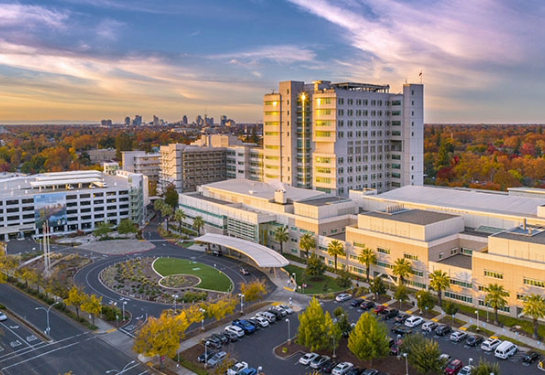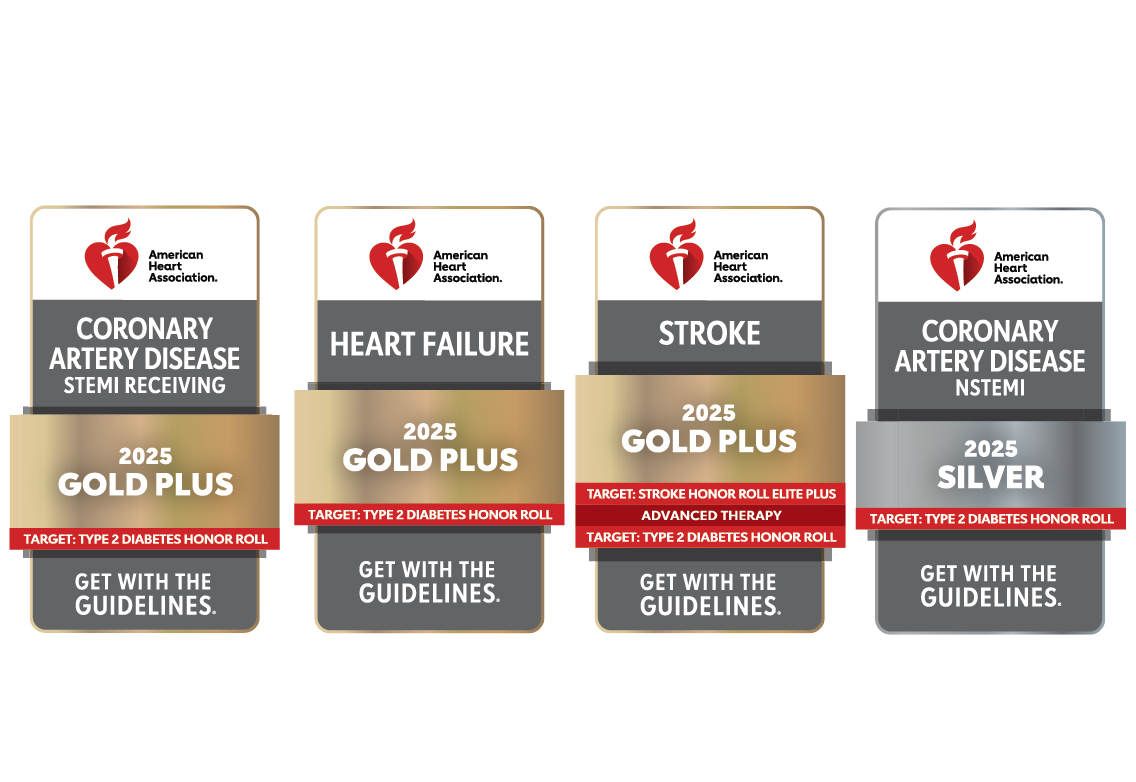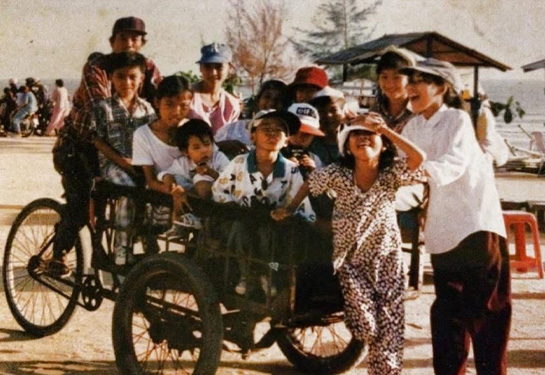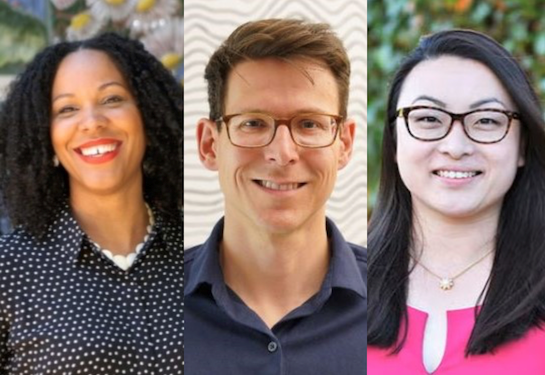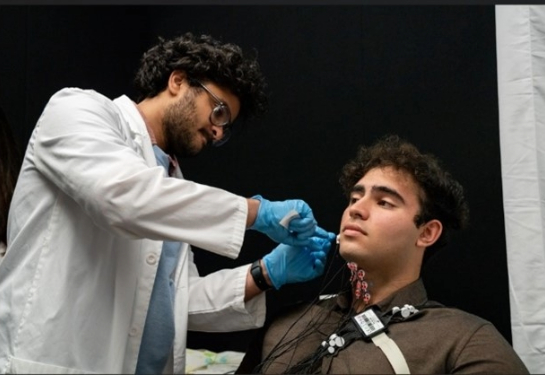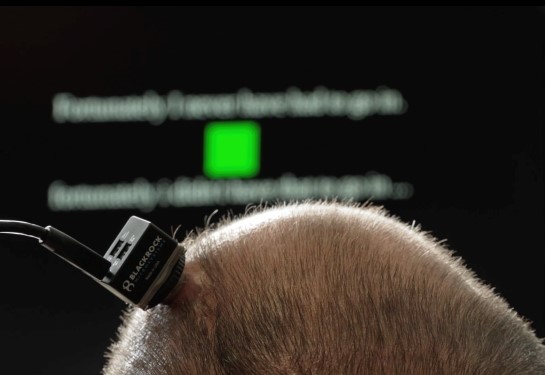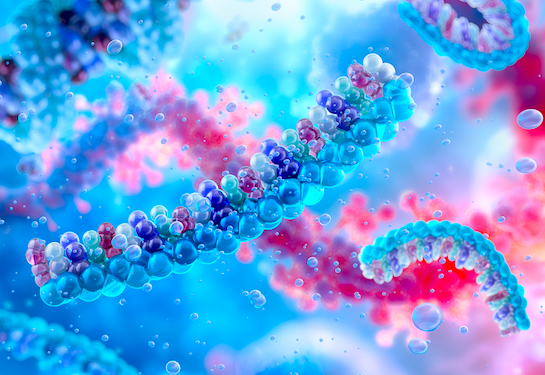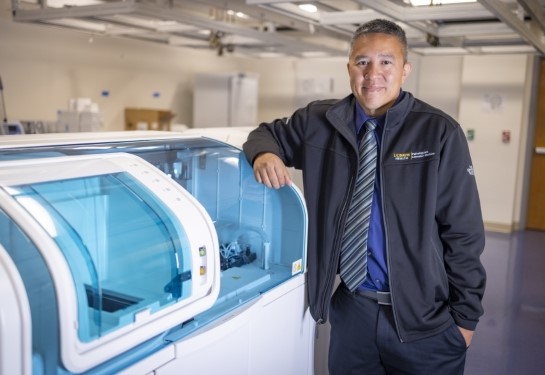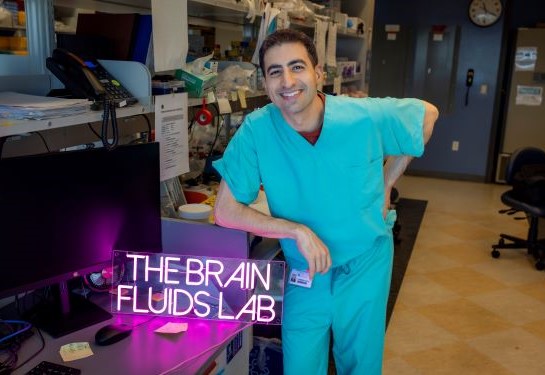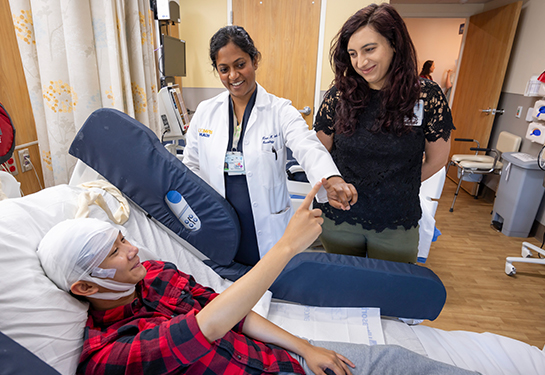-
February 13, 2026
Virtual reality exam checks eye health and screens for early signs of Alzheimer’s
UC Davis researchers are using virtual reality to make eye exams easier for seniors and to investigate whether it can detect early brain changes linked to Alzheimer’s disease.
Read More -
February 11, 2026
UC Davis scientists David Brandman and Sergey Stavisky named to 2026 TIME100 Health List
Neurosurgeon David Brandman and neuroscientist Sergey Stavisky have been named to the 2026 TIME100 Health List of the World’s Most Influential Leaders in Health in recognition of their outstanding BCI work.
Read More
VR Eye Exams Check Eye Health and Screen for Early Signs of Alzheimer’s | UC Davis Health Research
-
January 26, 2026
Protecting newborn brains: A conversation with neonatal neurologist Courtney Wusthoff
Neonatal neurologist Courtney Wusthoff discusses cooling treatment and EEG monitoring as best practices for newborns with potential hypoxic ischemic encephalopathy and seizures.
Read More -
January 06, 2026
Neurosurgery, maternal-fetal medicine team save pregnant woman of risky spinal fluid cyst
Only after becoming pregnant did Darlene Hildebrandt realize her congenital neurological condition threatened two lives — hers and her developing baby’s — until UC Davis Health doctors intervened.
Read More
-
December 22, 2025
New endowed professorship will expand impact of light-based technologies in health care
Laura Marcu, professor in the Departments of Neurological Surgery and Biomedical Engineering and director of NCIBT, has been appointed to the Endowed Professorship of Neurosurgical Research.
Read More -
December 08, 2025
UC Davis Health designated as a NORD Rare Disease Center of Excellence
UC Davis Health is now designated as a NORD Rare Disease Center of Excellence for its leadership in providing research and expert care for people with rare diseases.
Read More -
December 02, 2025
A neurologist’s personal call to study, treat and educate about Parkinson’s disease
Neurologist and movement disorders expert Norika Malhado-Chang dedicates her life to studying and treating Parkinson’s disease as a tribute to her mother who passed away from the disease.
Read More
-
November 25, 2025
Search for top spinal surgeon led Alaskan family to UC Davis
An Alaska family traveled 3,000 miles to UC Davis Health, where neurosurgeon Kee Kim restored hope through life-changing spine surgeries for both father and daughter.
Read More -
November 24, 2025
Two years after epilepsy surgery, 8-year-old is seizure-free and medication-free
Savon suffered up to 10 seizures each day. Now, thanks to the UC Davis Comprehensive Epilepsy program, he lives seizure free and without medications.
Read More
-
November 17, 2025
The Society for Neuroscience honors UC Davis researcher with top early career award
UC Davis neuroscientist Maitreyee Wairagkar was awarded The Society for Neuroscience’s early career award, in recognition of her outstanding research on brain-computer interface.
Read More -
November 06, 2025
Thomas P. Raley Foundation gift fuels UC Davis dementia caregiver education and research
The gift will expand the DICE Approach caregiver training and support Alzheimer’s Disease Research Center pilot grants
Read More
Two Years After Epilepsy Surgery, 8-Year-Old Is Free of Seizures—and Medications | UC Davis Health
-
October 15, 2025
What's at stake with federal research funding cuts
From Labs to Lives highlights the life-changing impact of federally funded research at UC Davis from medicine to food, agriculture to technology.
Read More -
October 02, 2025
Teen mysteriously loses mobility after common cold
An active teenager lost mobility after a common cold. Then a team from UC Davis Children’s Hospital provided the treatment that completely restored her movement.
Read More
-
September 24, 2025
New series from The Lancet offers roadmap for Alzheimer’s treatment in a changing therapeutic landscape
New research from Geriatric Psychiatrist Helen C. Kales looks at strategies for integrating emerging and existing treatments for Alzheimer's disease.
Read More
-
August 28, 2025
Center for Neuroscience names Marie Burns new director
Vision neuroscientist Marie E. Burns has been appointed director of the Center for Neuroscience after serving as interim director for the past year.
Read More -
August 25, 2025
Having a sense of purpose may protect against dementia
People who reported a higher sense of purpose in life were about 28% less likely to develop cognitive impairment, according to a new UC Davis study.
Read More -
August 21, 2025
New method allows researchers to study how the brain interacts with other organs in animal models
Cardiovascular researchers have developed a novel technique for preserving brain tissue in mice while simultaneously collecting living (unfixed) samples from other organs.
Read More -
August 08, 2025
Does a parent’s exposure to workplace chemicals affect autism in their children?
Parents’ workplace exposure to chemicals may be linked to a range of behavioral challenges and developmental delays in their children with autism.
Read More
-
July 29, 2025
UC Davis Medical Center ranked as top hospital in the Sacramento region
UC Davis Medical Center is the No. 1 hospital in the Sacramento region and No. 7 in California, according to U.S. News & World Report.
Read More -
July 28, 2025
U.S. POINTER Study shows lifestyle program improves cognition in older adults
A new study published in JAMA finds lifestyle interventions like diet and exercise improved cognition in older adults at risk of cognitive decline.
Read More -
July 16, 2025
UC Davis Health recognized by American Heart Association for high-quality heart and stroke care
UC Davis Medical Center earned four Get With The Guidelines awards from the American Heart Association for improving care for heart and stroke patients.
Read More -
July 07, 2025
How war trauma affects Vietnamese Americans’ brain health
Insights from a new study on war trauma on Vietnamese Americans can shape future research on aging, trauma and brain health.
Read More
-
June 19, 2025
UC Davis researchers honored by McKnight and Howard Hughes Medical Institute
UC Davis faculty Sergey Stavisky, Theanne Griffith and Elisa Zhang receive prestigious early-career recognition from McKnight Endowment Fund and the Howard Hughes Medical Institute.
Read More -
June 16, 2025
Restoring voices — and identity — with neuroengineering
Researchers are adapting technology for interpreting gestures and controlling robotic limbs to restore voices to those who have lost them after head and neck cancer.
Read More -
June 11, 2025
First-of-its-kind technology helps man with ALS ‘speak’ in real time
UC Davis researchers have developed a faster brain-computer interface that can instantaneously translate brain activity into voice as a person tries to speak.
Read More -
June 02, 2025
Do microRNAs hold the key to psychiatric and neurodegenerative disorders?
A new study identifies specific microRNAs in the brain that likely contribute to bipolar disorder, depression, schizophrenia, PTSD and Parkinson’s disease.
Read More
-
May 12, 2025
UC Davis Health offers highly accurate Alzheimer’s test
UC Davis Health is now offering an FDA-approved test that can predict Alzheimer's disease before the onset of major symptoms.
Read More
-
April 29, 2025
UC Davis pediatric neurosurgeon receives national award for hydrocephalus research
Pediatric neurosurgeon Cameron Sadegh was selected for a Hartwell Individual Biomedical Research Award to develop a gene therapy for hydrocephalus in premature babies.
Read More -
April 17, 2025
UC Davis Health nationally recognized for excellence in pediatric epilepsy
The UC Davis Comprehensive Epilepsy Program is the first in the region to receive National Association of Epilepsy Centers Level 4 Pediatric Epilepsy Center designation.
Read More -
April 16, 2025
Brain-computer interface study wins a top national clinical research award
Neurosurgeon David Brandman received the Clinical Research Forum’s most prestigious honor, The Herbert Pardes Clinical Research Excellence Award, for his groundbreaking brain-computer interface study.
Read More

